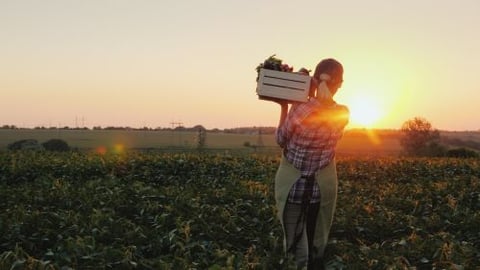UN Spotlights Food Loss and Waste
Food waste has been more top of mind in recent years, but the topic is generating extra attention with the marking of the International Day of Awareness of Food Loss and Waste on Sept. 29. The day was created by the United Nations General Assembly to increase awareness of the scope of the international problem.
Statistics on the impact of food waste are piling up akin to the unwanted and unused products that sit in landfills: According to the UN’s Food and Agricultural Organization (FAO), about 14% of the world’s food is lost after harvest and 17% is wasted in retail and at the consumption level. The issue is problematic in other ways, given the fact that food loss and waste comprise up to 10% of total greenhouse gas emissions.
“We need collective action to scale up efforts to reduce food loss and waste while reducing greenhouse gas emissions,” FAO Director General QU Dongyu said. “Let us continue to work together in an efficient, effective and coherent manner to raise awareness for and to stop food loss and waste. For healthy people and a healthy planet.”
Among other measures, the 2030 Agenda for Sustainable Development includes a call to action to cut the per capital global food waste in half at the retail and consumer levels and to reduce food losses across production and supply chain by the end of the decade.
Many organizations and businesses have upped their commitments to divert products from landfills and, at the same time, to deliver more nutritious foods to those in need. For example, stamping out food waste is a central part of The Kroger Co.'s ambitious Zero Hunger | Zero Waste program. According to the retailer’s 2022 ESG report, more than 500 million pounds of surplus food have been rescued from Kroger stores to stem waste and help end hunger. Kroger reports that it has reduced the total food waste generated in retail stores by 18.9% and improved the food waste diversion rate by 21.7% since 2017.
Meanwhile, retail-based programs like Flashfood, which works with grocers to sell food nearing its best-by date at a discount to shoppers, have also proven impactful. Earlier this year, Michigan-based Meijer announced that its customers have diverted more than a million pounds of food waste through the Flashfood initiative.
Various suppliers to the grocery industry are also taking actions to combat food waste. One example is Do Good Chicken, a brand that uses upcycled surplus food from grocers to make feed for chicken. The company announced this month that it has diverted more than 10 million pounds of healthy surplus grocery food from landfills, after community donations are made. Do Good Chicken launched into the retail channel last spring. “We believe upcycling is the food system of the future, and we launched Do Good Chicken to be a part of the solution to grocery store food waste and make a positive impact on the planet, right now,” remarked Justin Kamine, co-founder and co-CEO of Do Good Foods, the parent company of Do Good Chicken.
Efforts extend to those who provide equipment and design services to retailers. Honeywell, for example, helps retailers replace conventional high-global-warming-potential (GWP) refrigerants with reduced-impact alternatives, such as its Solstice portfolio of low GWP refrigerants. Whole Foods uses this system at more than 100 stores across the United States, according to Ken West, president of Honeywell Advanced Materials “Sustainability is a priority for many supermarket chains, but when your goal is to 'nourish people and nourish the planet,' you pay special attention to your carbon footprint,” he noted.
West underscored the immensity of the issue on the occasion of the International Day of Awareness of Food Loss and Waste. "If you still equate the phrase 'food waste' with your parents’ pleas to clean your plate, it’s time to think again. Food loss and waste are serious problems that not only affect the world’s ability to feed the hungry, but squander all the water, land, energy, labor and capital dedicated to producing, transporting and storing food that never gets eaten," he asserted.






